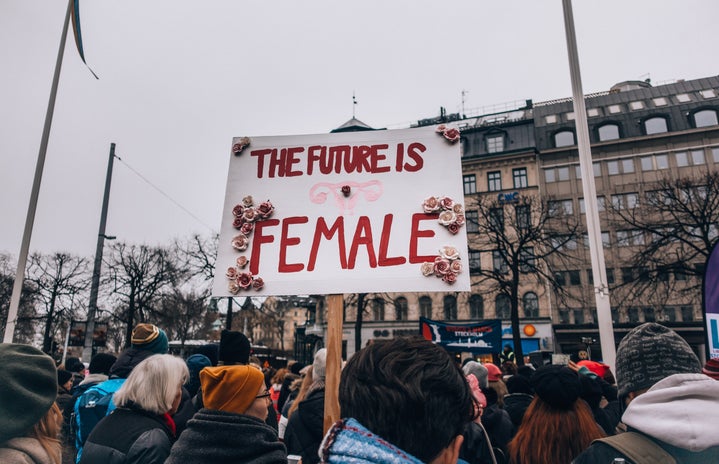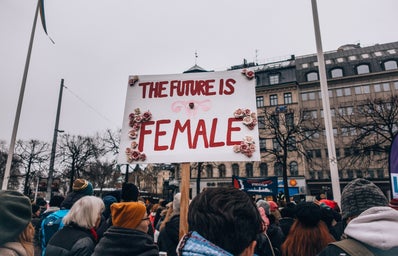**Trigger Warning: This article contains a reference to sexual assault that may be triggering for some readers**
So you’ve heard about Texas. That’s not a question; I know that you have or you wouldn’t have opened this article. If you’re anything like me, you are guilty of mindlessly scrolling social media (Instagram, Facebook, Snapchat, Twitter, etc) and skimming article titles without ever reading most of them in their entirety. If your feeds have looked anything like mine, you’ve been seeing images of women in these floor length red cloaks, saw the word “Gilead,” and direct references to something called The Handmaid’s Tale. If you’ve never seen the hit TV show by the same title or read the novel on which it’s based, these headlines may appear to be coming out of left field.
Margaret Atwood’s The Handmaid’s Tale tells the story of Gilead, a dystopian Eastern US coast town. While this dystopia has many similarities to other dystopias you may be familiar with (think of The Hunger Games’ Panem or Divergents’ factions), Gilead is home to high rates of infertility that make reproduction a commodity that only the rich can afford. This is carried out with the use of ‘Handmaids’. Handmaids are young, supposedly fertile women who are kept by the wealthy men of society with the purpose of bearing children. They are not wives, but rather forced surrogates for the often infertile wives of these wealthy men.
As bad as this makes Gilead sound, the dystopia actually gets worse. From the “training” that Handmaid’s go through to the public punishment for the servant class that try to escape, Gilead is home to a plethora of horrors, but it is the role of the Handmaid’s that is bringing Gilead to recent news titles.
Handmaid’s are the ultimate personification of women stripped of reproductive rights. Not only is there no compensation for the “service” they provide, they do not choose the position, many do not want it, and they are never given a way out until they are no longer fertile. During their time as Handmaids, everything that these women interact with is monitored and decided by their Commanders (the men of whom they are assigned to). From the type of and amount of lotion they are to use to everything they eat and drink, the Handmaids have virtually no autonomy when it comes to any facet of their own bodies and the decisions that are related to it. This is true as in order to do their duty as Handmaids they are required monthly to participate in a “ceremony” in which they are forced to engage in sexual intercourse with their Commander in hopes of being impregnated. The Handmaid’s Tale follows the life of one such Handmaid, Offred (pronounced “of Fred” as the Handmaid’s are referred to only by the name of their Commander to further remove their autonomy.)
So what does this have to do with the new anti-abortion law in Texas? Bottom line, The Handmaid’s Tale is one author’s depiction of what a future without reproductive rights could look like. The novel was published in 1985 and precedes the modern political concerns of women’s reproductive rights. However, it serves as one example of how quickly all other rights can be “justifiably” removed once we start with those concerning reproduction. The fact of the matter is that this country has debated reproductive rights for decades and these conversations rarely have an equal proportion of women involved and often their voices are left out of the legal conversations altogether. That is why we hear their voices so loudly on the internet when decisions are made for them…just like Atwood’s Handmaids. This isn’t new, but increasing comparisons to a dystopia known for its dramatic belittlement of women should tell you all you need to know about the fear that today’s American women are living with.
Maybe you’re furious, maybe you’re upset, maybe you’re scared, or maybe you’re just confused. I’m not a legislator, I’m not a doctor (yet…I’m working on that one), I’m not a professor in English, and I’m not a lawyer, but I AM a woman. More importantly, I AM a human being. So I care. Regardless of how you identify, where you fall politically, or what your personal morals say about abortion, laws like the one recently passed in Texas affect all of us and everyone should care about it.


